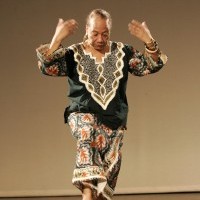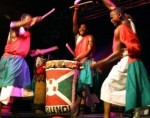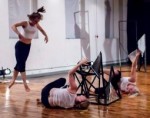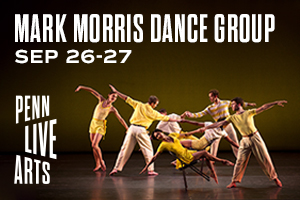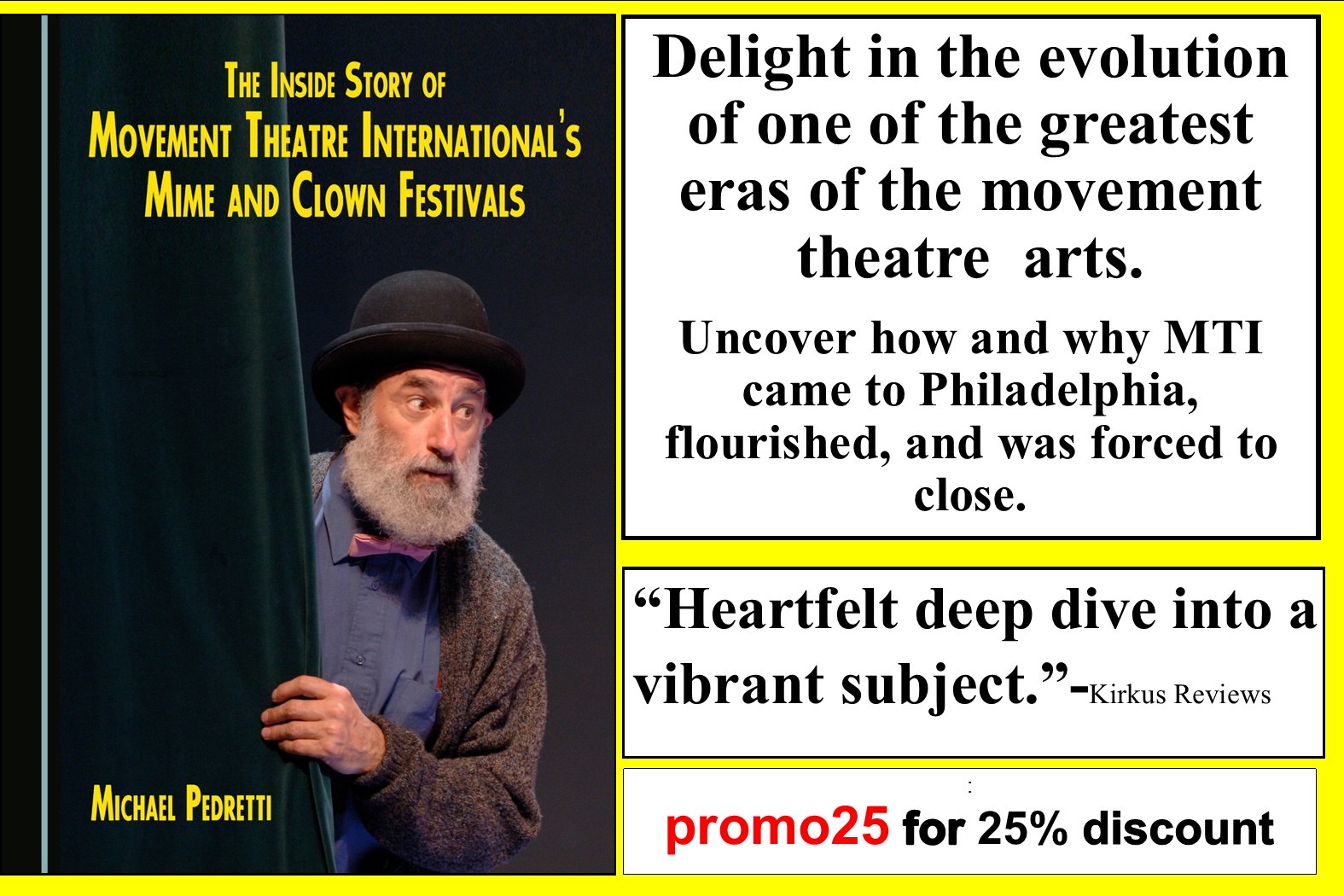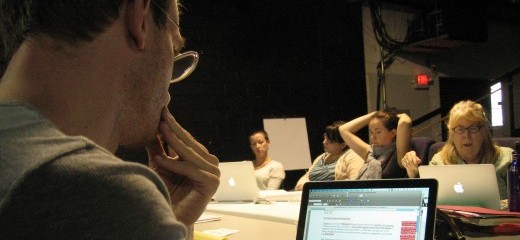
Elizabeth Zimmer Works With Philadelphia Writers: Shock and Awe!
by Kariamu Welsh
Elizabeth Zimmer, the venerable New York dance critic ran one of her infamous Kamikaze workshops with the newly formed thINKingDANCE group headed by Lisa Kraus and Anna Drozdowski on October 7, 8 and 9th. Elizabeth’s fame preceded her and many of the writers were acquainted with her “take no prisoners” reputation. The name of the workshop gives you a clue about the all-or-nothing approach Elizabeth takes with her editing methodology. Twenty-one writers waited with bated breath to receive her blessings with a word by word, line by line and comma by period, feedback and review.Elizabeth Zimmer has reviewed and written about dance for over forty years. She started out in radio at a time when there were several newspapers in every town and city; she began to create a niche for herself writing dance reviews. She worked at the Village Voice, one of the largest and first alternative newspapers, for fourteen years, before new management and cost-cutting measures ended that distinguished run in August 2006. Elizabeth now writes for the Ballet Review and free-lances for a variety of print and social media. She is the first to say that the forum for dance reviews has changed dramatically. Blogs, online venues and social media are all accepted forms for dance reviews as the presence of art critics in general diminishes and dance critics in particular find less room at mainstream newspapers.
Elizabeth is a tall redhead with a youthful appearance despite a recent surgery on her knee. She intersperses her reading of our reviews with stories about her life and interaction with the “dancerati” of New York, which makes for a nice respite. Her stories are often funny, interesting and sometimes irreverent.
The Kamikaze workshops began fourteen years ago at a Dance Critics conference. They are a wonderful, if intense, vehicle for understanding the nuts and bolts of writing dance reviews, especially as related to grammatical structures, brevity and staying on point. Our Kamikaze workshop ran for two and a half days, functioning as a dance critic’s writing intensive. The first evening that we met was for introductions and assignments. Then many writers stayed for the evening’s “Seen and Heard” performances at Christ Church Neighborhood House, writing about them for the next day’s meeting. That evening, a second group of writers attended the second “Seen and Heard” program. Sunday’s workshop format was a little different in that there were not as many reviews to read, and some of the writers who attended both performances had the opportunity to have their work read and reviewed by Elizabeth and the group a second time.
The deadlines that the writers faced replicate how in practice a dance critic sees a performance and has less than forty-eight hours before the review goes to press. In these workshops, the time pressure is real and adhered to. Elizabeth edits our reviews by asking the difficult questions. “I don’t know what this means,” “Why did you start with this statement” or a less charitable “This doesn’t say anything” are some of the comments she made about our writing. She is not there to be popular or liked, although she earned our respect almost immediately. She is consistent in her reviews and having seen the same performances, she was able to weigh in with her observations and insights.
The thINKingDANCE group is a diverse group of writers from the dance and theater community of the Philadelphia area. While the group is diverse in age and ethnicity, for the most part the genres of ballet, modern or post-modern dance are the primary areas of expertise. Many of the writers are current dancers and choreographers and a few are presenters or dance administrators. As is common in the dance world, a few of the writers are all-of-the-above. In general, the group reviewed each other’s work with insightful comments.
Elizabeth is tough but she is fair and thorough. Her comments are generally on target and no one in the group escaped her scrutiny. Her meticulous attention to details in the reviews is amazing. She was able to point out things that escaped the attention of most of the group. I appreciated her insights even when I didn’t agree with everything she said, particularly as it related to word choices.
Elizabeth admires poetry, although she wasn’t always crazy about our poetic license when writing. She gave out Wallace Stevens’ poem “Of Modern Poetry” for the thINKingDANCE group to read, relating it to what a good review should contain and lauding its brevity and efficiency.
Some of the rules Elizabeth writes by and shared with us were: observe details, take notes, write and rewrite, and read out loud. The “read out loud” tip was a good one, as one doesn’t normally think of reading prose out loud unless we are reading to someone. It was very useful when we all read our reviews out loud and, in the reading, picked up on awkward phrasing, superfluous language and inconsistencies. She invoked the revered dance critic Edwin Denby (1903-1983), reporting that he took as his directive getting "drunk" on the performance at hand and then writing about it so that the reader gets drunk in turn. Among other Zimmer tips were: avoid comparison, pick a tense and stick to it, and review as opposed to criticize. Elizabeth is an open, generous teacher whose experience enables her to zero in on a review and find its limitation quickly. To her credit, she was able to do this in a firm but non-judgmental way.
Kamikaze literally means “Divine Wind” in Japanese and most Americans know the term from the suicide attacks by the Japanese during World War II. The use of the term Kamikaze as it relates to the writer’s intensive is less dramatic and more metaphorical. But it is certainly an effective and strategic in achieving Elizabeth’s purpose: to make the skills of the writing dance community more efficient and meaningful. On behalf of the thINKingDANCE writers, mission accomplished!
By Kariamu Welsh (1949-2021)
October 28, 2011

